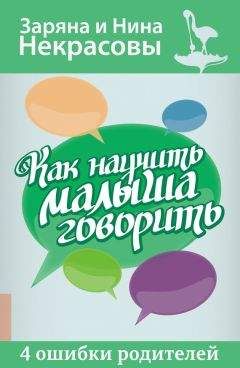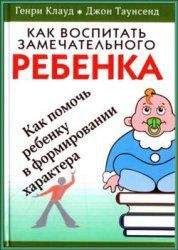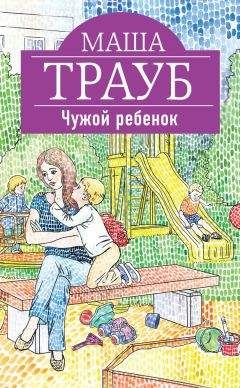Leo Frankowski - CONRADS QUEST FOR RUBBER
We spent two days standing in long lines, something none of us had ever done before, interspersed with numerous embarrassing interruptions as we were washed, shaved, deloused, fed, inspected by a half-dozen medical people, and, finally, after being naked for an entire day in a huge, cold building, issued uniform clothing.
We were a vastly changed group when at last we were counted off, assigned to our companies, and taken to our permanent barracks.
As it happened, my position in the line was such that I was the last man in one company and my father was the first in the next. My father shouted protests at this separation of his family, but the captain in charge was too tired and harried to pay any attention to him.
I felt a twinge of both panic and anguish at being thus separated from my father and brother, since in the course of our induction we had somehow parted company from all of the others who had come with us from Okoitz. Indeed, it was the first time I had ever been separated from my male relatives.
For the first time in my entire life, I was friendless.
I was dazed and confused as I obeyed the shouting captain, and walked away at the end of the line. Everything was so strange, so different from anything I had ever seen before.
For all of my life up to that point, for as long as I could remember, I had always been surrounded by people that I knew. An unfamiliar face had been a rare thing, a person from some distant land whole miles away from where things had such a comforting familiarity.
Now, as 1 looked around, I could see not one single person I knew. We had walked a long way through this weird place,with many twists and turns, and I was soon lost. I didn't know where I was. I didn't even know why I was.
We stopped in front of a building that seemed to stretch out to the horizon in both directions, a mile long, at least. The captain told us his name was Stashu Targ, and that we were the Third Company of the Second Komand of the First River-boat Battalion. I promptly forgot everything he had said. He pointed to the number written above the doorway behind him and read it to us, twice. I forgot this, too, just as quickly. I had seen too many new things this day, and my mind simply could not take in anything more.
I think that the others around me must have been in the same sad shape that I was, for when the captain stopped talking, we all just stood there, dumb.
Then a knight came up with a pen and a horn of indelible ink and wrote the number above the door on the back of our left hand, one of us at a time.
"This is where you live," he said patiently to each of us. "When you get lost, come back here."
I nodded mutely. It was as though I was surrounded by a fog, and that fog would not lift for months.
I did what I was told, and they kept me amazingly busy. We marched in step with one another for many mind-numbing hours. We endlessly repeated the same awkward motions with pikes, knives, and axes, until somehow they became less awkward.
We ate together, sang together, and prayed together. Over the weeks, we were armed and armored, but we were all disappointed when we were issued axes as our secondary weapons rather than swords.
Captain Targ explained that the sword was a hard weapon to master. Skill with one took years to develop, and we had only four months before the Mongols would arrive. On the other hand, everybody had chopped firewood. We already knew how to use an axe.
The problem, as far as we grunts were concerned, was that an axe is a peasant's weapon, whereas the sword was the weapon, even the symbol, of a nobleman.
Sir Odon said that we would learn about swords after the war, when we all came back for the other eight months of the Warrior's School. Furthermore, our primary weapons were the two-yard-long halberds that the first lance used, the six-yard-long pikes that the second, third, fourth, and fifth lances carried, and most important, the swivel guns that the sixth fired. Swords, axes, and knives were really unimportant.
We grunts would still have been much happier with swords than with the axes we were given.
Somehow, though I was never quite sure when or how, I learned how to take care of my equipment, how to answer properly to my superiors, how to fight with my weapons. I felt my muscles getting bigger, my hands getting harder, my waist getting smaller. They had to adjust my armor three times to fit the changing me.
They yelled at me, gesticulated, and swore at me as no one ever had before, but eventually I ceased to be troubled by it. They chewed my ass so many times that after a while all they could get was scar tissue.
What I did not ever do was find my father, or my brother, or indeed anybody at all that I had ever known before. I searched, but I never found them.
In school, back home, they had taught me a bit about probabilities, and I tried to compute the possibility of finding my family and friends. At Okoitz, I must have known— what? — two hundred men? Here in Hell, they told me there were a sixth of a million of us. If I saw a hundred men outside of those in my own company every day, how long should it be before I saw a single familiar face? I worked it out again and again and rarely got the same number twice, but it seemed that it could not possibly take as long as it was taking.
The company kept records on those of us who belongedto it, but there were no central records for the entire army. There was no one who could tell me where in this huge city— the largest in Christendom, they told us — my father and brother were.
They had tried to keep such records once, but as the army grew, the task became impossible. Sir Odon said that maybe after we won the war, we would have time for such things. I did not find this to be comforting.
I often wrote to my mother, and I was sure she was writing to me, but the mails were all fouled up. Delivering them was one of the things the army did in times of peace, and I could understand we had other priorities now. In four months I got only two letters from her, and neither of them seemed to contain any answers to my questions, like "What is my father's address?"
The fact that she had my address meant she must have gotten at least one letter from me, and surely my father must have written to her as well! All I could think was that perhaps my questions had all been answered in some earlier, undelivered letter.
Yet all things fade, including the loneliness in my heart and the fog that surrounded my head. Slowly, I began to take notice of the other men in my lance, in my platoon, in my company. I began to realize I had new friends now, and in some ways they were better than those I had left behind.
At least they were more interesting, none of them being bakers.
The fellow in the bunk above me, Zbigniew, had worked on Lord Conrad's ranch, where they had a large herd of slightly domesticated aurochs. He had been one of the Pruthenian children Lord Conrad had rescued from the Crossmen.
The guy in the bunk below, Lezek, came from the neighboring ranch where all of Anna's children were raised until they reached their fourth year.
At that age, they somehow "remembered" everything that their mother had known up to the time they were conceived, even though there wasn't a stallion involved in their procreation.
Unlike people and just about everything else in the world, Anna and her children had offspring whenever they wanted and did it without the help of the opposite sex. In fact, the opposite sex didn't exist for their species, a thing that made most of the men in my lance claim to feel sorry for them.
You see, sex was a subject that was often discussed among us, though I suspected my lance mates had as little real knowledge of the subject as I did.
In any event, Lezek was impressed with the fact that I had known Anna herself since I was six years old, and he questioned me for days about every incident I knew of concerning her. Even though his father had worked with the Big People for years, no one he knew had actually talked for any length with Anna herself.
While there were only twenty-nine adult Big People at that point, there were three hundred sixty-four young ones at the ranch, managed by a young woman named Kotcha, whom I vaguely remembered. Once, she had lived a few doors down from my family's house.
Lezek said that in ten years there would be twenty-four thousand adult Big People, and ten years after that everybody would have one. I'm not sure if anyone believed him, but that's what he said.
The other three men in our lance were less talkative, since none of them spoke much Polish. Fritz was a German who came from a farm not far from Worms. He could read and write our language well, since he had been reading Lord Conrad's magazine every month for five years, but his pronunciation still left much to be desired. He had come to join our army, he said, because the chances of rising in the world were better here than anyplace else, and that being a farmer was mostly a matter of walking behind a plow and staring at the ass end of a pair of oxen for most of your life. And anyway, he had more brothers than his father had farmland for them to inherit.
Kiejstut was a Lithuanian who had come because he heard that the army would arm, armor, and train him to fight Mongols. A year earlier, Mongol raiders had killed his father and one of his brothers, kidnapped his youngest sister, and burned down his entire village. He wanted vengeance, even though he was by nature a rather quiet, reserved, even shy person, one who was always careful not to give offense.
The sixth member of my lance was Taurus, a Ukrainian whose family had once lived north of Kiev. He was the only one of his large family who was still alive. Hatred and bitterness seemed to radiate from him. I never once saw him smile, and I never heard him laugh, not until we saw combat and he started killing Mongols. Sterner and far more exacting than our knight, Sir Odon, he was always quick to chastise the rest of us for any slackness during our training, and even for any levity.
Our training went on for four months, and at the time it seemed forever. Sir Odon said that we were getting only a special short course, and if we wanted to stay in the army, we would have to come back here sometime and take another eight months of this.
We all groaned at the thought of an additional eight months in Hell. Almost as an article of faith, we soldiers complained about everything we did or had done to us. This was even true of those grunts (for that was indeed what they called us) who did not come from Lord Conrad's lands, about three-quarters of those in my company.
I had noticed these generally older men when we were first joined together to form our company. Mostly, they were less healthy than the rest of us, thinner, and poorly fed. Also, it seemed to me that some of them were mentally duller than the people I had grown up with. Now they were wearing the first pairs of leather boots that some of them had ever owned, and almost all of them had put on healthy weight, but they still felt obligated to complain, so they did so.
Privately, I think they were impressed by the wealth of the army, and that most of them had resolved to stay in, if they could possibly manage it.
At the end of February, when final preparations were being made, when weapons, ammunition, preserved food, and everything else we would need for the months ahead was being issued, one of the warehouse workers handed me a white leather kit with a red cross on it.
I asked what it was.
"It's a medical kit," he said. "We usually hand them out only to people who have completed the surgeon's course, but someone had too many of these kits made up. The captain said to hand them out to one man from each company, just in case you need it."
I said that I was in the fifth lance, so I'd had the first-aid course, but that was just to help the wounded until somebody got there who knew what he was doing. I didn't know anything about really fixing people!
"Everybody who does already has a kit. Keep it. Clip it on your belt, just in case."
I did as I was ordered, and I quit wearing my smaller first-aid pack since everything in it was also in the big medical kit.
I soon discovered there were advantages to wearing the kit, since real medics were rarely sent out to do the dirtiest jobs, such as cleaning the latrines. Once I had the kit, people assumed I was trained in its use, and thus my life became a bit easier. No one ever asked me if I had taken the proper course, so I was never even tempted to lie about it;
Our company was part of the River Battalion, the men who would be manning the riverboats on the Vistula. This intrigued me, since I had often heard of boats, but had never seen one. In truth, I had never even seen a river.
We wouldn't be actually operating the boats, of course; that was the job of another group entirely. We had only to ride along, we were told, and to obey the orders of our knights and captains, who had vast experience on the dozens of steam-powered boats the army had.
Well, my knight, Sir Odon, was the same age I was, but had joined the army a year earlier, and I don't think he had vast experience in anything. My captain, Sir Stashu, looked to be perhaps eighteen and was no gray-bearded repository of wisdom, either, but I kept my mouth shut, as my father, a wise man, had taught me.
Grunts bitched about everything, but we learned that there were a few topics of conversation that could get you chosen to shovel out the garbage, or to wash a few thousand dishes, and that among these was the inexperience of our leaders. They knew it themselves, and preferred not to think about it.
Chapter Three
From the Journal of Josip Sobieski
WRITTEN JANUARY 19, 1249, CONCERNING FEBRUARY 15, 1241
AT LAST, we said our final Sunrise Service in Hell, and we marched out to war.
Well, we had to pull our war carts behind us, there were only two railroad tracks to pull them on, and there were a sixth of a million of us troops to move out. An hour went by before we finally left Hell, and we were near the front of the line. Our doubled column was over sixteen miles long! Even at a brisk walk, it took almost six hours for us to march by!
Once we finally got on the tracks, it wasn't all that hard to pull the big cart, even loaded as it was with the tons of guns, pikes, and all the other material we needed to fight with. Counting our six knights and the knight-banner who led us, there were forty-three men in our platoon.
Our cart could be pulled by eighteen of them, with the rest of us riding aboard, resting, eating, or even sleeping. This let us continue onward right around the clock, doing over six dozen miles a day without ever once breaking into a run.
The six carts of my company pulled off the main road when we got to East Gate and left the main body of the army to go on without us.
A great crowd of civilians was leaving the dock area. There must have been thousands of them, mostly peasants, but with a scattering of well-dressed people as well. They were all walking back the way we had come; refugees who would shelter at the Warrior's School, we presumed.



